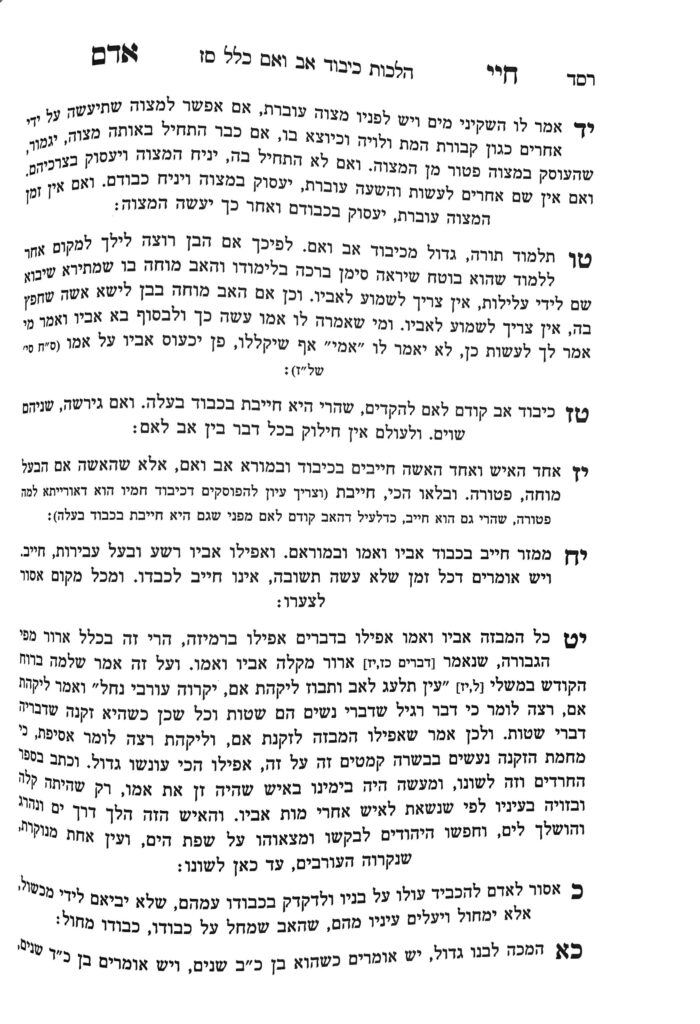We are continuing in siman 15. We learned that talmud torah and marriage is greater than kibud av v’eim, in the sense that the child does not need to listen to the parent’s directive in those cases if the child feels it will negatively impact their fulfillment of the mitzvah. We will discuss other applications, but first we will clarify how this concept applies to talmud torah.
The poskim differentiate between the general talmud torah of the individual, which is what the Chayei Adam is discussing in this siman, and a specific direct conflict between talmud torah and fulfilling a mitzvah. In the latter case, we would not apply the rule of the Chayei Adam, and the child should interrupt their learning to perform the mitzvah. Thus, for example, if a child is learning at home, and a parent asks the child to help clean up, the child cannot use talmud torah as an excuse to refrain from performing kibud av v’eim. If the child can find someone else to perform the mitzvah (mitzvah she’efshar laasos al yedei acheirim), he may excuse himself, but if not, he must perform the mitzvah.
If the need to interrupt his learning becomes ongoing, it may fall into the parameters of the case of the Chayei Adam. One should consult their rav.
If one is learning away from home, and a parent comes to visit, the Ohel Yaakov writes there is no chiyuv to inform the child that their parent has arrived if it will interrupt their learning. If the child wishes to be informed, he may certainly be interrupted, but there is no chiyuv to interrupt one’s learning to perform the mitzvah of kibud av v’eim.
Examples of other mitzvos which may override kibud av v’eim:
If a parent wishes that a child walk to work rather than use a mode of transportation which they deem unsafe, but by doing so, the child would miss tefillah betzibur, the child is not chayav to listen to their parents.
If a child is having their parents over, and their parents do not want the child to invite other guests, but the child does not want to lose out on the mitzvah of hachnasas orchim, if the parents present a logical argument (e.g., they wish to spend quality time together), it is proper for the child to listen. However, if the parents present an irrational argument, Rav Elyashiv writes that a child is not chayav to refrain from the mitzvah of hachnasas orchim due to their parent’s request, in the same way that we learned that a child does not need to refrain from learning torah in a specific city because their parents are concerned for their safety.
Summary
- The child has the mitzvah to respect and serve the parent, but the parent does not have control over the child. Therefore, when there are differing opinions between parent and child regarding how to perform a mitzvah, the child does not have to listen to their parents. Examples include talmud torah, marriage, tefillah betzibur and hachnasas orchim.
- Regarding talmud torah, one does not have to listen to their parents when it is a question of a general fulfillment of the mitzvah. If the parent asks for a one-time interruption, the child should interrupt their learning.
- Regarding hachnasas orchim, if the parents have a logical argument as to why the child should not invite other guests, the child should listen. If their argument is irrational, the child is not chayav to give up his mitzvah of hachnasas orchim.



